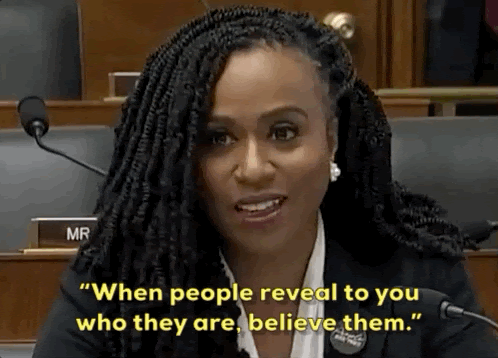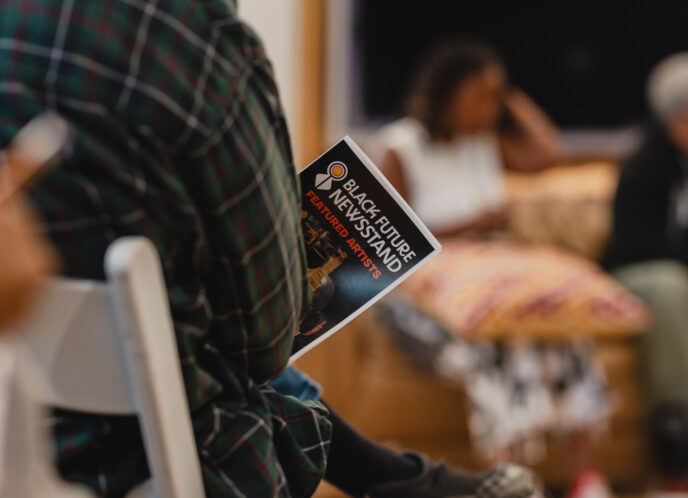by Jai Dulani, National Political Education Manager
This past year, my own understanding of how power is working in the #BigTech landscape has exponentially grown and deepened, including what our ongoing movement interventions are to shift power toward liberation so we are all connected, represented, and free. Here are my top 3 takeaways from this year:
On Digital Equity: We’re Winning

The Biden Administration’s 2021 Infrastructure Investment and Jobs Act was a BIG win for digital equity. More money is being invested in bridging the digital divide than EVER before – $65 billion to be exact – the largest investment in broadband access in U.S. history. A part of this investment includes a long-term federal subsidy: the Affordability Connectivity Program -which MediaJustice Network members and partners played a role in making happen through the intensive organizing for the success of its predecessor, the COVID-era Emergency Broadband Benefit.
The language and principles of digital equity and digital inclusion in the act acknowledge that:
1) Internet connection and digital literacy are essential to accessing healthcare and education and for civic participation;
2) The digital divide has disproportionately impacted communities of color, lower-income households, and rural areas;
3) It is the government’s responsibility to bridge this systemic divide and ensure equitable access.
This now-government-official common sense about digital equity is the result of years of movement work that named the digital divide as a racial justice issue. So, where do we go from here? According to Brandon Forester, our National Organizer, Internet Rights, and Platform Accountability, this is a huge opportunity for a new wave of local and community-based solutions like municipal networks, co-operative internet solutions, and new digital navigator and stewardship programs. We look forward to supporting communities leading local solutions that go beyond affordability and access, so that our people have the agency and power to build the futures they want to live in.
On Online Hate: The Stakes are High & Corporate Accountability is a Must

While many of us had the same reaction as Amber Ruffin did to the revelations about Facebook, uncovered by whistleblower Frances Haugen, we can’t let the egregious harms Facebook is responsible for get swept under the rug or let them go back to business as usual. We knew that in January when we launched a petition demanding Zuckerberg step down in light of the insurrection and we know that now as we demand Facebook’s board urge Zuckerberg to step down. From playing a critical role in the genocide against Rohingya people in Myanmar as well as in massive casteist and anti-Muslim violence in India to fueling white supremacist organizing, the Facebook papers reveal that Facebook did not take action to curb these harms, had different standards for powerful actors, and disregarded its own internal research in favor of user engagement, and ultimately their profit. Holding platforms accountable will require multiple strategies – from breaking up big tech,, to acting in solidarity with Spanish-speaking communities. At MediaJustice, we know bigger structural changes need to happen to yield the change we want to see. The people united will never be defeated!
On Surveillance & Artificial Intelligence: The Scale is Unprecedented

The facts: Federal agencies are expanding their use of facial recognition software and local law enforcement is too – without oversight and despite evidence of systemic bias against Black, brown, queer, and other marginalized communities.
(Sidenote: We told them not to do this back in February, in the wake of the Jan. 6 attack on the U.S. Capitol. – to resist criminalization after crisis.

And yet, here we are. We did, however, win a moratorium on Amazon selling facial recognition software to police and federal agents.)
In addition, surveillance software – i.e. the ability to spy on you and all your business on the internet is a lucrative industry and law enforcement is a key customer. This means increased hyper-policing, false arrests, and abuse of power.
The scale of state and corporate surveillance has specifically targeted impacts on protestors, workers, students, people of color, and low-income communities.
On top of criminalization, the discriminatory bias that artificial intelligence has on housing, education, and jobs is automating racial and economic disparities.

Given all of this, the White House recently opened up a process to start building a Bill of Rights for AI which as Hannah Sassaman of Movement Alliance Project said, could guide the federal government to regulate how these tools can be used, our rights to challenge what they say about us, and even keep the government from buying or using technologies that don’t respect our rights and civil liberties. Check out our own Campaign Strategies Director, Myaisha Hayes on this recent White House panel that was part of the rollout. Tell the White House now: we need to keep artificial intelligence and surveillance from deepening discrimination in communities nationwide.
As we move into 2022, stay connected with MediaJustice as we continue to fight for racial, gender and economic equity in a digital age.



